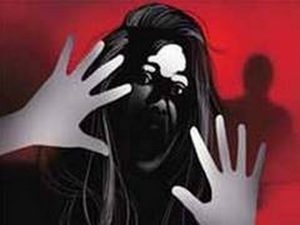Dhaka – War crimes convict Motiur Rahman Nizami was hanged in the erly hours of Wednesday for crimes against humanity during the Liberation War in 1971.
After long six years of trial, the 73-year-old Ameer of Bangladesh Jamaat-e-Islami was hanged in Dhaka Central Jail at 12:10am.
“Motiur Rahman Nizami was hanged at 12:10am for his crimes against humanity,” said Senior Jail Super of Dhaka Central Jail Jahangir Kabir while talking to reporters at the jail gate around 12:30am.


Acting Inspector General (Prisons) Col Iqbal Hasan, Civil Surgeon Abdul Malek Mridha, deputy commissioner of Dhaka Mohammad Salauddin and Jail Jahangir Kabir were present during the execution.
Escorted by law enforcers, a hearse carrying the body of Nizami was sen for his village home at Manmathpur in Santhia upazila of Pabna around 1:31 am. He will be buried at his village graveyard.
Nizami was given the final bath followed by ‘tawba’ (seeking pardon to the Almighty) administered by an imam administering him,” in line with the practice ahead of hanging.
Hours before the execution, family members of Nizami, who served as the Industries Minister during the 2001-2006 BNP tenure, were allowed to meet him inside the central jail. He had led the Jamaat also in an anti-Bnp coalition movement in 1995 that led to fall of the Bnp-led government in 1996.
With the latest execution, five convicts have so far been executed for war crimes, while two others — Jamaat leader Ghulam Azam and BNP leader Abdul Alim who had been sentenced to imprisonment unto death — died in jail.
Earlier, Jamaat leaders Abdul Quader Mollah, AHM Kamaruzzaman, Ali Ahsan Mohammad Mojaheed and Muslim Legue-Jaiya Party-turned BNP leader Salauddin Quader Chowdhury were executed as they had been awarded death penalty for their crimes against humanity in 1971.
The full verdict of the Supreme Court rejecting the review petition of Motiur Rahman Nizami was released on Monday. Later, a copy of the verdict reached the Dhaka Central Jail around 7:05 pm and it was read out to Nizami.
Nizami was shifted to the Dhaka Central Jail from Kashimpur Central Jail in Gazipur on Sunday night.
On May 5, the Appellate Division rejected the petition of Nizami seeking review of its earlier verdict upholding the death penalty awarded by the International Crimes Tribunal.
On March 15, the ICT issued a death warrant for Nizami for his crimes against humanity during the Liberation War in 1971 after the apex court released the full text of its verdict upholding his death penalty.
On January 6, a four-member bench of the Appellate Division, headed by the Chief Justice, upheld the death sentence of the Jamaat-e-Islami Ameer dismissing his appeal petition.
The Appellate Division upheld the ICT-1 order sentencing Nizami to death for the wartime crimes, including genocide and murder of intellectuals.
On October 29, 2014, the ICT-1 sentenced Nizami to death for committing crimes against humanity during the Liberation War.
Nizami filed an appeal with the SC on November 23, 2014 challenging the death sentence and claimed himself innocent while refuting all the charges.
On July 29, 2010, the Jamaat chief was arrested for allegedly hurting religious sentiments.
He was shown arrested on August 2 the same year for committing crimes against humanity during the Liberation War and the trial began nearly two years later on May 28, 2012.
Born on March 31, 1943 in Pabna’s Santhia upazila, Nizami rose to the rank of president of East Pakistan unit Islamic Chhatra Sangha (ICS), the student wing of Jamaat, in 1960. Later, he became the president of West and East Pakistan ICS (now Islami Chhatra Shibir) in 1966.
During the country’s Liberation War in 1971, then 28-year-old Nizami was the chief of Chhatra Sangha
After the Liberation War, Nizami along with his guru Ghulam Azam fled to the UK.
After the assassination of Bangabandhu Sheikh Mujibur Rahman who was heading government as President in August 1975, Prof Ghulam Azam and Motiur Rahman Nizami returned to Bangladesh and regrouped Jamaat before the 1982 Ershad-led coup following the assassination in 1981 of Bnp’s founder and then president Ziaur Rahman.
In 1991, Nizami was elected an MP from Pabna-1 constituency with Jamaat ticket and supported the Bnp to form government as no party had an overwhelming majority in Parliament. By 1993 the Jamaat turned against the Bnp government as it smelt Bnp’s silent support to the ‘Ekatorer Ghatok Dalal Nirmul Committee’ led by Prof. Jahanara Imam which led a movement for the trial of Jamaat leaders who committed war crimes in 1971. That committee staged a mock trial by the ‘Gono Adalat’ at Suhrawardy Uddyan and awarded token death penlty to Prof. Golam Azam.
A case filed aginst Ghulam Azam for taking over as president of Jamaat, despite his being a citizen of Pakistan, led to the restoration of his citizenship by the apex court
Nizami took over as the Ameer of Jamaat from Prof Ghulam Azam in 2001. In the same year, he was again elected MP from Paban as his party had joined the election under the banner of BNP-led four-party alliance.
As the four-party alliance formed the government, Nizami had been inducted in the cabinet and served as the agriculture minister until 2003 and thereafter as industries minister until 2006.




